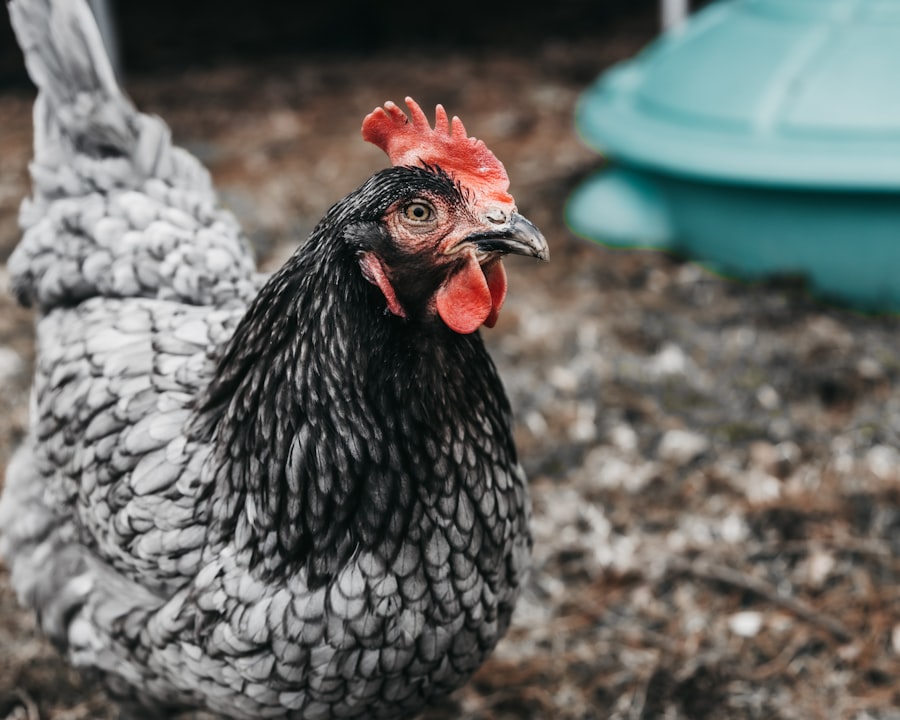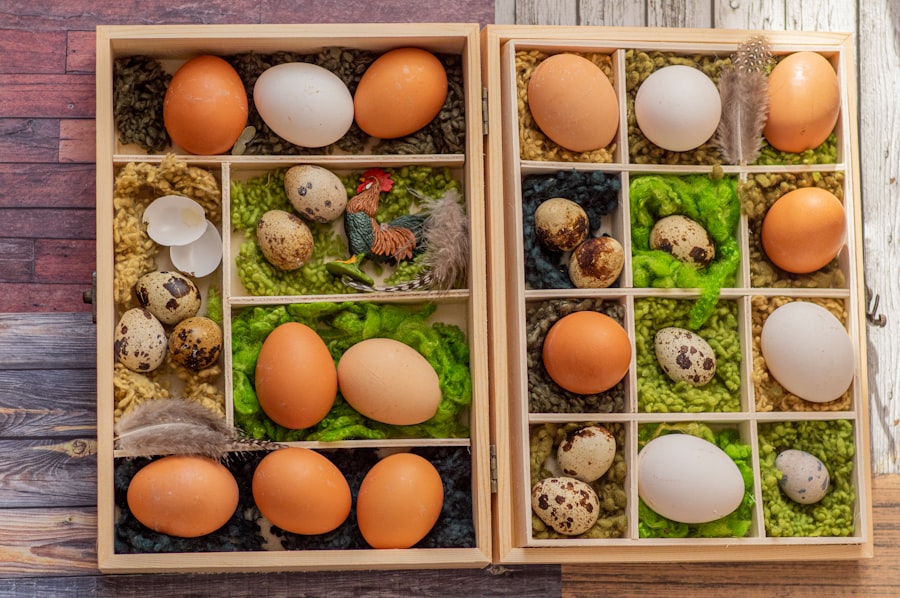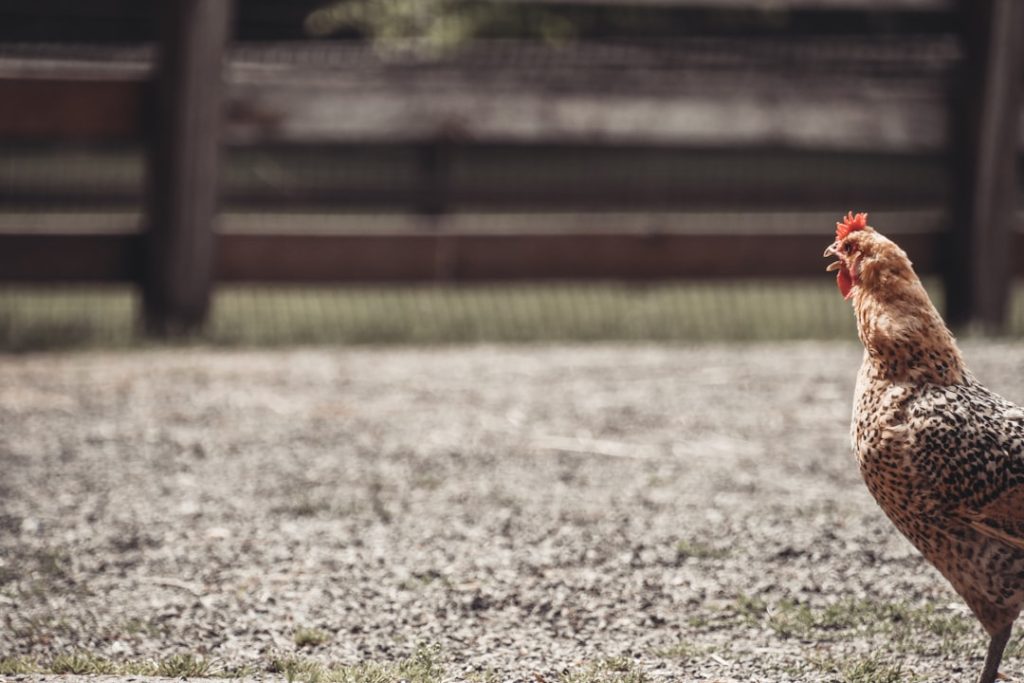When selecting an environment for rescue chickens, several key factors must be considered. Safety is paramount, requiring a sturdy fence or enclosure to protect chickens from predators and prevent escape. The area should be free from hazards such as toxic plants or chemicals.
Space is crucial for chickens to exhibit natural behaviors. They require ample room to roam, forage, scratch, and peck for insects and plants. Ideally, chickens should have access to a large outdoor area or pasture.
Climate considerations are essential, as chickens are sensitive to extreme temperatures. Adequate shelter and protection from the elements are necessary. This may include providing shade in hot climates and insulation in colder regions.
The environment’s cleanliness is also important for the chickens’ health and well-being. Regular maintenance and cleaning of their living space help prevent disease and ensure a comfortable habitat. Proper nutrition and access to clean water are vital components of a suitable chicken environment.
Providing appropriate feed and fresh water sources contributes to the overall health of rescue chickens. Carefully evaluating these factors before bringing rescue chickens home is crucial to ensure their health, safety, and ability to thrive in their new environment.
Table of Contents
- 1 Providing Proper Nutrition and Water for Your Rescue Chickens
- 2 Creating a Safe and Comfortable Shelter for Your Rescue Chickens
- 3 Establishing a Regular Health and Wellness Routine for Your Rescue Chickens
- 4 Integrating Your Rescue Chickens into a Flock
- 5 Understanding and Addressing Behavioral Issues in Rescue Chickens
- 6 Building a Bond with Your Rescue Chickens
- 7 FAQs
Key Takeaways
- Choose a quiet and predator-proof environment for your rescue chickens to thrive
- Provide a balanced diet and clean water to ensure the health and well-being of your rescue chickens
- Create a secure and comfortable shelter with proper ventilation and nesting areas for your rescue chickens
- Schedule regular health check-ups and vaccinations to maintain the wellness of your rescue chickens
- Introduce new rescue chickens to the existing flock gradually to minimize stress and aggression
Providing Proper Nutrition and Water for Your Rescue Chickens
Nutritional Requirements
A balanced diet is key to keeping your rescue chickens healthy. This should include a mix of grains, seeds, fruits, vegetables, and protein sources such as mealworms or crickets. Grit and oyster shell are also essential for digestion and egg production.
Access to Clean Water
In addition to a balanced diet, it’s essential to ensure that your rescue chickens have access to clean, fresh water at all times. Chickens need water not only for hydration but also for regulating their body temperature and aiding in digestion. Make sure that water containers are kept clean and free from contaminants, and consider using a waterer with a heating element in colder climates to prevent freezing.
Key Considerations
When providing proper nutrition and water for your rescue chickens, there are several key considerations to keep in mind. Ensure that your chickens have access to a balanced diet and clean, fresh water at all times. Regularly clean water containers and consider using a waterer with a heating element in colder climates. By following these guidelines, you can help keep your rescue chickens healthy and happy.
Creating a Safe and Comfortable Shelter for Your Rescue Chickens

Creating a safe and comfortable shelter for your rescue chickens is essential for their health and well-being. When it comes to housing your chickens, it’s important to provide adequate space for them to roost, nest, and move around freely. This may include providing multiple roosting bars at different heights and nesting boxes for laying eggs.
In addition to space, it’s important to ensure that the shelter is well-ventilated and free from drafts. Proper ventilation will help prevent respiratory issues in your chickens, while also regulating temperature and humidity levels. Additionally, providing insulation in colder climates will help keep your chickens warm during the winter months.
When it comes to creating a safe and comfortable shelter for your rescue chickens, there are several key considerations to keep in mind. First and foremost, it’s important to provide adequate space for them to roost, nest, and move around freely. This may include providing multiple roosting bars at different heights and nesting boxes for laying eggs.
In addition to space, it’s important to ensure that the shelter is well-ventilated and free from drafts. Proper ventilation will help prevent respiratory issues in your chickens, while also regulating temperature and humidity levels. Additionally, providing insulation in colder climates will help keep your chickens warm during the winter months.
Establishing a Regular Health and Wellness Routine for Your Rescue Chickens
Establishing a regular health and wellness routine for your rescue chickens is crucial for keeping them happy and healthy. This may include regular health check-ups with a veterinarian who specializes in poultry care, as well as vaccinations and parasite prevention treatments as recommended by your vet. Additionally, keeping a close eye on your chickens’ behavior and appearance can help you identify any potential health issues early on.
In addition to veterinary care, it’s important to establish a regular grooming routine for your rescue chickens. This may include trimming their nails, cleaning their feet, and checking for any signs of injury or illness. Regular grooming can help prevent health issues such as bumblefoot and mites, while also allowing you to bond with your chickens through gentle handling.
When it comes to establishing a regular health and wellness routine for your rescue chickens, there are several key considerations to keep in mind. First and foremost, it’s important to schedule regular health check-ups with a veterinarian who specializes in poultry care. This will allow you to stay on top of any potential health issues and ensure that your chickens are receiving the care they need.
In addition to veterinary care, it’s important to establish a regular grooming routine for your rescue chickens. This may include trimming their nails, cleaning their feet, and checking for any signs of injury or illness. Regular grooming can help prevent health issues such as bumblefoot and mites, while also allowing you to bond with your chickens through gentle handling.
Integrating Your Rescue Chickens into a Flock
Integrating your rescue chickens into an existing flock can be a delicate process that requires patience and careful observation. When introducing new chickens to an established flock, it’s important to do so gradually and in a controlled manner. This may involve keeping the new chickens separate from the existing flock at first, allowing them to see and smell each other before eventually introducing them face-to-face.
Additionally, providing plenty of space and resources such as food and water can help reduce competition and aggression among the flock members. It’s also important to monitor the interactions between the new and existing chickens closely, stepping in if any aggressive behavior occurs. When it comes to integrating your rescue chickens into a flock, there are several key considerations to keep in mind.
First and foremost, it’s important to introduce new chickens gradually and in a controlled manner. This may involve keeping the new chickens separate from the existing flock at first, allowing them to see and smell each other before eventually introducing them face-to-face. Additionally, providing plenty of space and resources such as food and water can help reduce competition and aggression among the flock members.
It’s also important to monitor the interactions between the new and existing chickens closely, stepping in if any aggressive behavior occurs.
Understanding and Addressing Behavioral Issues in Rescue Chickens

Common Behavioral Issues in Rescue Chickens
Chickens can exhibit a wide range of behaviors, including aggression, feather pecking, egg eating, and broodiness. It’s essential to understand the underlying causes of these behaviors to address them effectively.
Addressing Aggression in Rescue Chickens
One common behavioral issue in rescue chickens is aggression, which can be caused by overcrowding or competition for resources. Providing plenty of space, resources, and opportunities for natural behaviors such as dust bathing can help reduce aggression among flock members. Additionally, addressing any underlying health issues or stressors can also help alleviate aggressive behavior in rescue chickens.
Key Considerations for Addressing Behavioral Issues
When it comes to understanding and addressing behavioral issues in rescue chickens, there are several key considerations to keep in mind. First and foremost, it’s essential to understand the underlying causes of these behaviors to address them effectively. By providing a suitable environment and addressing underlying issues, you can help reduce behavioral problems and create a happy and healthy flock.
Building a Bond with Your Rescue Chickens
Building a bond with your rescue chickens is not only rewarding but can also help you better care for them on a day-to-day basis. Spending time with your chickens on a regular basis can help build trust between you and them, making it easier to handle them for grooming or veterinary care when needed. Additionally, providing enrichment activities such as hanging treats or setting up dust bathing areas can help keep your rescue chickens stimulated and happy.
Taking the time to observe their behaviors and preferences can also help you better understand their individual personalities and needs. When it comes to building a bond with your rescue chickens, there are several key considerations to keep in mind. First and foremost, spending time with your chickens on a regular basis can help build trust between you and them, making it easier to handle them for grooming or veterinary care when needed.
Additionally, providing enrichment activities such as hanging treats or setting up dust bathing areas can help keep your rescue chickens stimulated and happy. Taking the time to observe their behaviors and preferences can also help you better understand their individual personalities and needs. In conclusion, caring for rescue chickens requires careful consideration of their environment, nutrition, shelter, health routine, integration into a flock, behavioral issues, and building a bond with them.
By taking these factors into account and providing proper care for your rescue chickens, you can ensure that they live happy, healthy lives under your care.
If you’re looking for tips on how to keep rescue chickens, you might also be interested in learning about what geese can eat. Check out this article on poultrywizard.com to find out more about feeding geese.
FAQs
What are rescue chickens?
Rescue chickens are chickens that have been saved from situations of neglect, abuse, or abandonment. They may come from factory farms, backyard breeders, or other situations where they were not receiving proper care.
How can I provide a safe environment for rescue chickens?
To provide a safe environment for rescue chickens, it’s important to provide a secure coop or shelter to protect them from predators and the elements. Additionally, ensuring they have access to clean water, nutritious food, and space to roam and forage is essential.
What kind of diet do rescue chickens need?
Rescue chickens require a balanced diet that includes a high-quality commercial feed, as well as access to fresh fruits, vegetables, and grains. It’s important to provide them with a variety of foods to ensure they receive all the necessary nutrients.
How can I help rescue chickens adjust to their new environment?
To help rescue chickens adjust to their new environment, it’s important to give them time to acclimate to their surroundings. Providing a calm and quiet space, as well as gentle handling and interaction, can help them feel more comfortable and secure.
Are there any special health considerations for rescue chickens?
Rescue chickens may have health issues due to their previous living conditions, so it’s important to monitor their health closely. Regular veterinary check-ups, proper parasite control, and a clean living environment can help prevent and address any health concerns.
Meet Walter, the feathered-friend fanatic of Florida! Nestled in the sunshine state, Walter struts through life with his feathered companions, clucking his way to happiness. With a coop that’s fancier than a five-star hotel, he’s the Don Juan of the chicken world. When he’s not teaching his hens to do the cha-cha, you’ll find him in a heated debate with his prized rooster, Sir Clucks-a-Lot. Walter’s poultry passion is no yolk; he’s the sunny-side-up guy you never knew you needed in your flock of friends!







